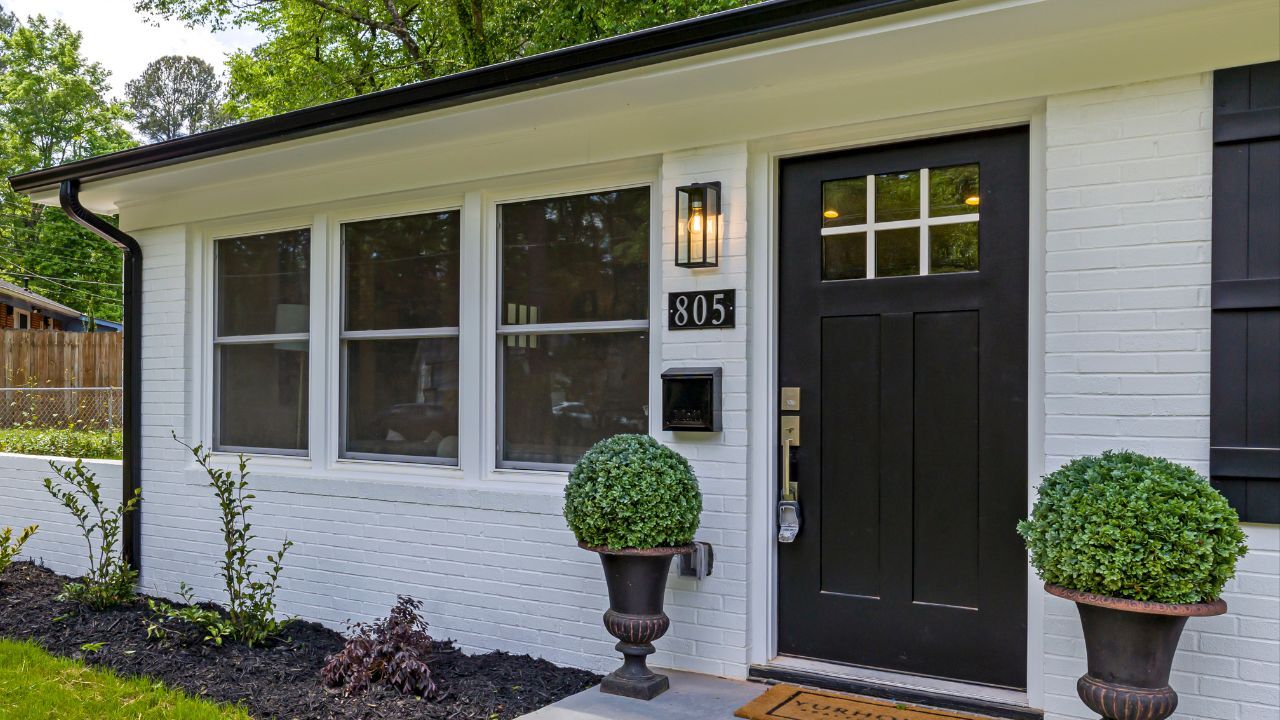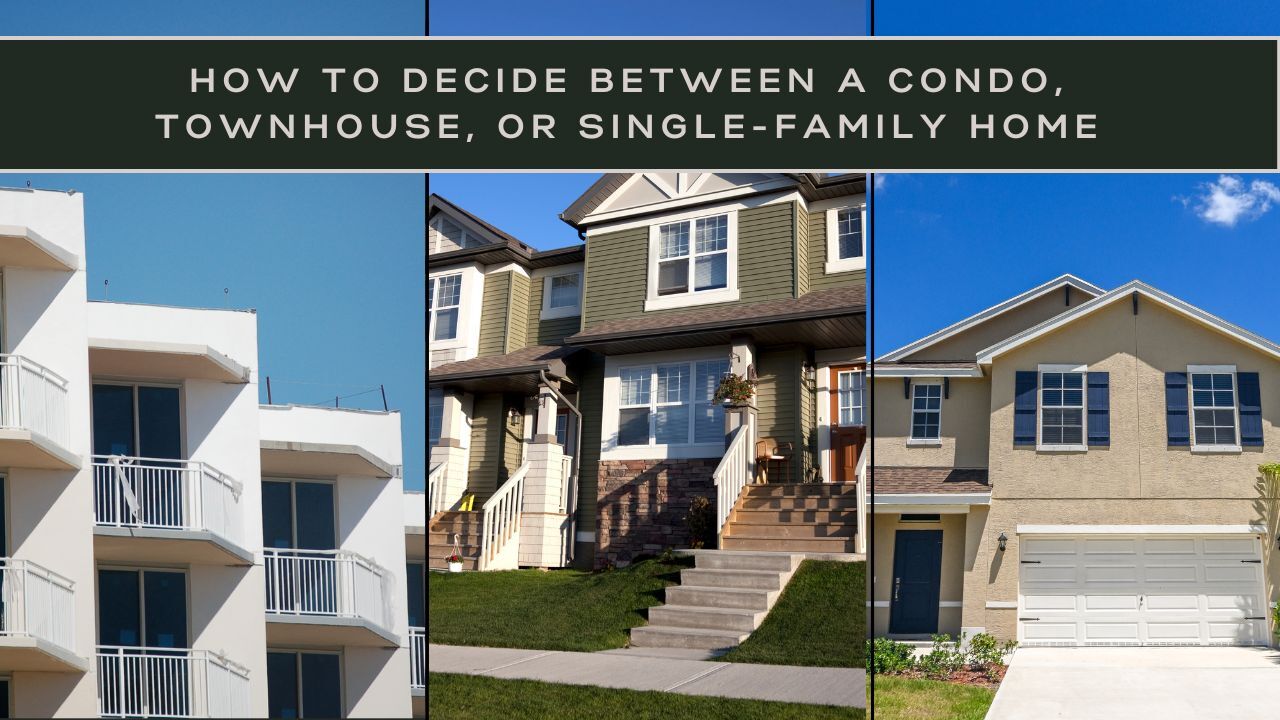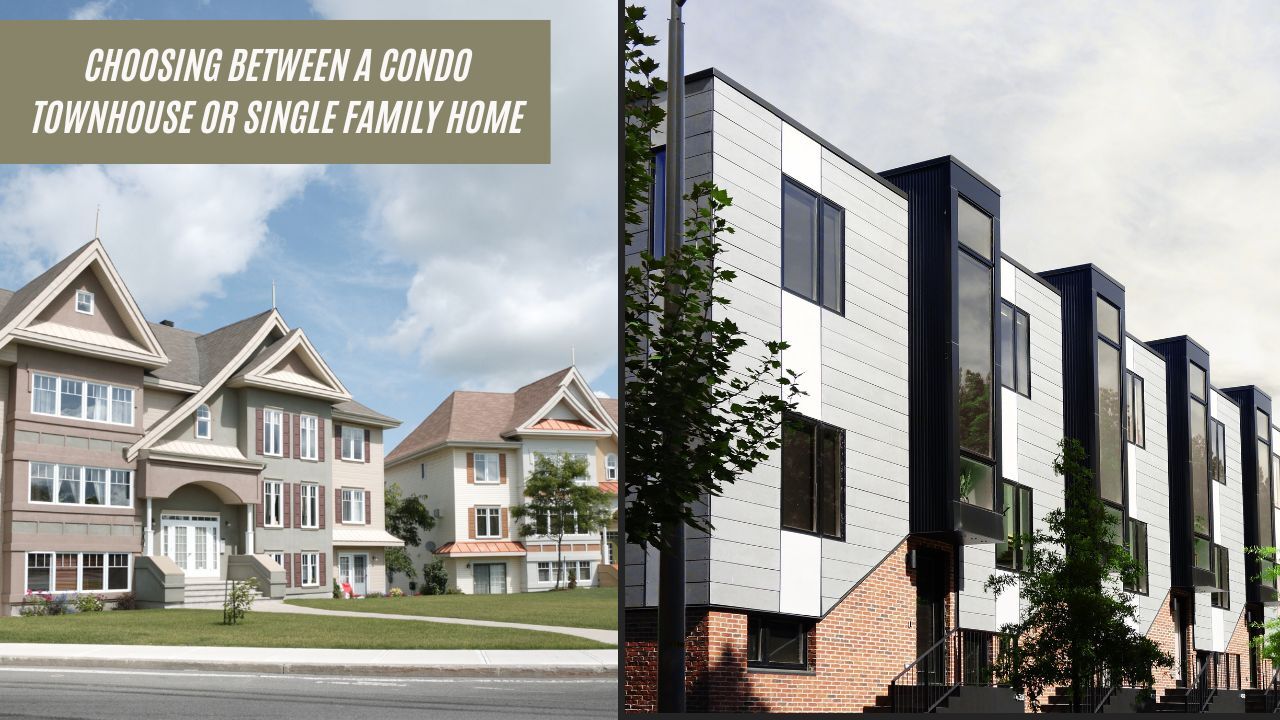 When you start shopping for a home, you will quickly notice that not all properties are created equal. From cozy condos to spacious single-family homes, each property type offers a unique lifestyle, level of maintenance, and investment potential. Understanding the differences helps you choose the kind of home that best fits your goals, budget, and way of living.
When you start shopping for a home, you will quickly notice that not all properties are created equal. From cozy condos to spacious single-family homes, each property type offers a unique lifestyle, level of maintenance, and investment potential. Understanding the differences helps you choose the kind of home that best fits your goals, budget, and way of living.
Single-Family Homes
A single-family home is one of the most popular choices among buyers. It offers privacy, a yard, and the freedom to personalize your space without shared walls or association restrictions. These homes are ideal for buyers who want room to grow and enjoy outdoor living. However, they often come with higher maintenance costs and responsibilities, which is important to plan for when budgeting.
Condominiums and Townhomes
Condos and townhomes are great options for buyers who prefer less maintenance or a more urban lifestyle. With shared amenities such as pools, gyms, and community spaces, these properties offer convenience and social connection. Homeowners association fees typically cover exterior upkeep and landscaping, freeing you from many daily maintenance tasks. Just remember to review the association rules and fees to ensure they fit your lifestyle and budget.
Multi-Family Properties
A multi-family property can be a smart move for buyers looking to combine homeownership with investment potential. These properties include duplexes, triplexes, and small apartment buildings that allow you to live in one unit while renting out the others. This setup can help offset mortgage costs and build long-term wealth, though it does come with added management responsibilities.
New Construction Homes
If you value modern design, energy efficiency, and a move-in-ready experience, new construction homes may be appealing. They often include updated features, warranties, and customization options. Keep in mind that new homes can be priced higher than resale properties, and neighborhoods may still be under development, which could affect convenience and resale timing.
Manufactured and Modular Homes
These properties provide affordable paths to homeownership and have evolved significantly in quality and design. Manufactured and modular homes can offer great value for buyers who want more space at a lower cost. It is important to consider location, financing options, and land ownership details when exploring this type of property.
Choosing the right property type comes down to lifestyle, budget, and long-term goals. Whether you value privacy, convenience, or investment potential, understanding your options helps you make a confident and informed decision when finding your ideal home.
Hashtags:
 Choosing the right type of home is one of the most important decisions a buyer can make. Condos, townhouses, and single-family homes each offer unique benefits and challenges. The best choice depends on your lifestyle, budget, and long-term goals. Understanding what sets them apart can help you make a confident and informed decision.
Choosing the right type of home is one of the most important decisions a buyer can make. Condos, townhouses, and single-family homes each offer unique benefits and challenges. The best choice depends on your lifestyle, budget, and long-term goals. Understanding what sets them apart can help you make a confident and informed decision. Deciding what type of home to buy is one of the most important steps in the home buying process. Condos, townhouses, and single-family homes each offer unique benefits and considerations, and the right choice depends on your lifestyle, budget, and long-term goals. Understanding the differences can help you make a confident decision.
Deciding what type of home to buy is one of the most important steps in the home buying process. Condos, townhouses, and single-family homes each offer unique benefits and considerations, and the right choice depends on your lifestyle, budget, and long-term goals. Understanding the differences can help you make a confident decision. Investing in real estate can be a powerful way to build wealth, but not all properties are created equal. The key to successful investment is identifying opportunities before the competition does. From understanding market trends to analyzing property fundamentals, knowing what to look for can make all the difference between a profitable investment and a costly mistake.
Investing in real estate can be a powerful way to build wealth, but not all properties are created equal. The key to successful investment is identifying opportunities before the competition does. From understanding market trends to analyzing property fundamentals, knowing what to look for can make all the difference between a profitable investment and a costly mistake. When buyers walk into a home, their attention is often drawn to one particular space more than any other, the kitchen. It is no coincidence that real estate professionals often call the kitchen the heart of the home. Beyond its practical function, the kitchen carries emotional and psychological weight that can influence a buyer’s decision more than any other room.
When buyers walk into a home, their attention is often drawn to one particular space more than any other, the kitchen. It is no coincidence that real estate professionals often call the kitchen the heart of the home. Beyond its practical function, the kitchen carries emotional and psychological weight that can influence a buyer’s decision more than any other room.